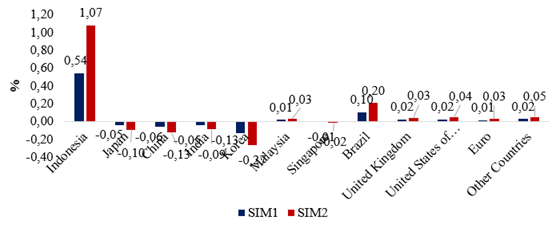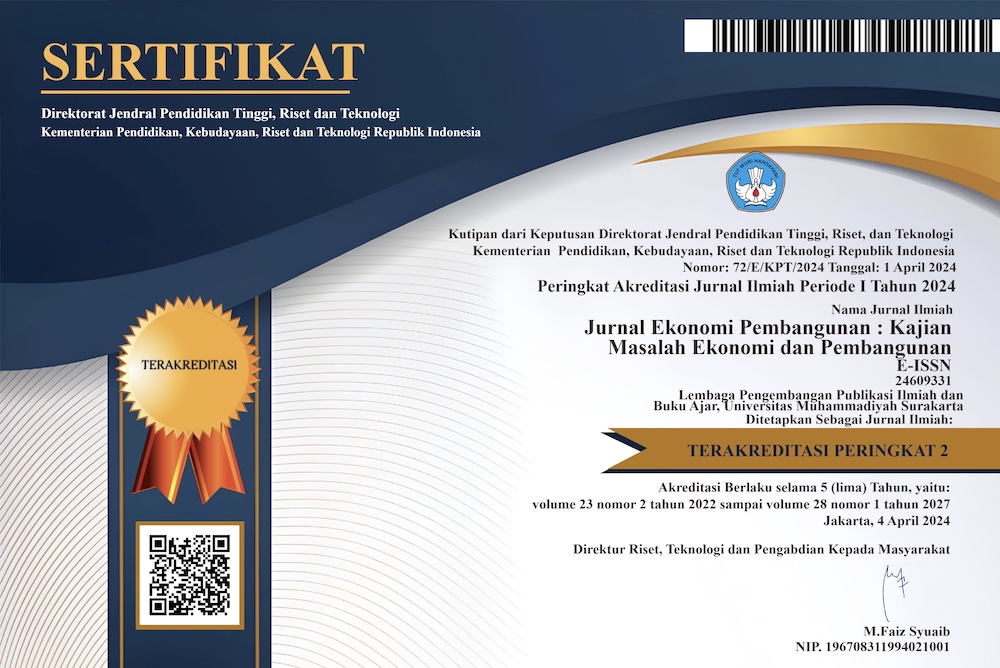What are the economic impacts of Indonesia’s export ban? A Computable General Equilibrium Analysis
DOI:
https://doi.org/10.23917/jep.v25i1.23626Keywords:
International trade and finance, Computable General Equilibrium ModelsAbstract
In encouraging domestic industrialization, Indonesia plans to stop exporting raw materials for other commodities, including bauxite, tin, coal and copper. This study aims to assess the economic impact of the mineral export ban on Indonesia and other countries. The comparative-static version of the computable general equilibrium model (Global Tarde Analysis Project (GTAP)) is used to analyse the economic impact of the export ban, with a particular focus on GDP, welfare, terms of trade and external trade. The most recent GTAP version 9 database was used for the modelling simulations of the export ban. The GTAP version 9 database has three reference years: 2004, 2007 and 2011. It already aggregates 140 regions and 57 sectors. The modelling simulation results show that the policy of bauxite, copper and tin export tyres benefits the Indonesian economy. Meanwhile, Indonesia’s export ban policy harmed the economies of other countries, particularly China, Japan, India, Korea and the EU-28.
Downloads
















